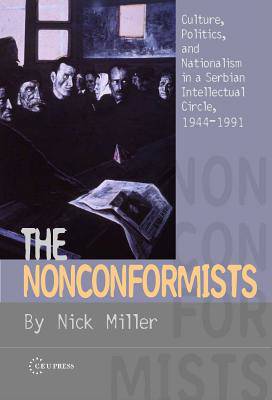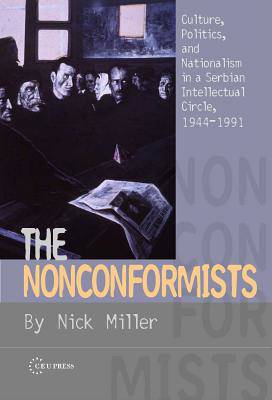
- Afhalen na 1 uur in een winkel met voorraad
- Gratis thuislevering in België vanaf € 30
- Ruim aanbod met 7 miljoen producten
- Afhalen na 1 uur in een winkel met voorraad
- Gratis thuislevering in België vanaf € 30
- Ruim aanbod met 7 miljoen producten
Zoeken
The Nonconformists
Culture, Politics, and Nationalism in a Serbian Intellectual Circle, 1944-1991
Nick Miller
Hardcover | Engels
€ 281,95
+ 563 punten
Uitvoering
Omschrijving
Serbia's national movement of the 1980s and 1990s, the author suggests, was not the product of an ancient, immutable, and aggressive Serbian national identity; nor was it an artificial creation of powerful political actors looking to capitalize on its mobilizing power. Miller argues that cultural processes are too often ignored in favor of political ones; that Serbian intellectuals did work within a historical context, but that they were not slaves to the past. His subjects are Dobrica Cosic (a novelist), Mica Popovic (a painter) and Borislav Mihajlovic Mihiz (a literary critic). These three influential Serbian intellectuals concluded by the late 1960s that communism had failed the Serbian people; together, they helped forge a new Serbian identity that fused older cultural imagery with modern conditions.
Specificaties
Betrokkenen
- Auteur(s):
- Uitgeverij:
Inhoud
- Aantal bladzijden:
- 412
- Taal:
- Engels
Eigenschappen
- Productcode (EAN):
- 9789637326936
- Verschijningsdatum:
- 1/12/2007
- Uitvoering:
- Hardcover
- Formaat:
- Genaaid
- Afmetingen:
- 166 mm x 229 mm
- Gewicht:
- 721 g

Alleen bij Standaard Boekhandel
+ 563 punten op je klantenkaart van Standaard Boekhandel
Beoordelingen
We publiceren alleen reviews die voldoen aan de voorwaarden voor reviews. Bekijk onze voorwaarden voor reviews.











